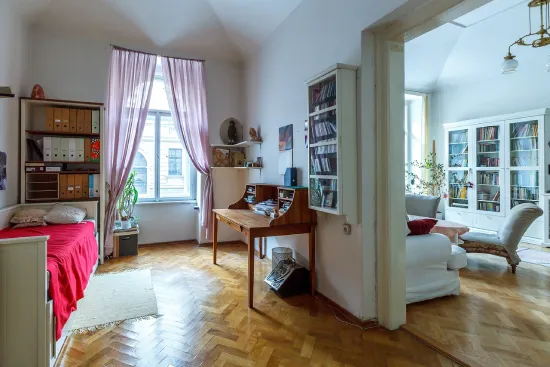Furnished apartments are equipped with most of the furniture, amenities like TV, and kitchen equipment an individual or family might need.
Unfurnished apartments may come with kitchen appliances, lights, heating/cooling, and functioning bathrooms, but you may be responsible for everything else. Even kitchen appliances are not required by law but rather a good practice in the competitive NYC rental market.
There are pros and cons of renting both that you should take into account so you can make an informed rental decision. The main areas where the two different types of apartments differ in NYC are:
Inventory
The inventory of fully furnished apartments is low compared to unfurnished apartments. With fewer choices, you may have limited options inside your budget to choose from. This may have an impact on your travel time, children’s school district, neighborhood choices, building amenities, etc.
Cost
An unfurnished apartment may usually come at a higher cost than a comparable unfurnished apartment, and it’s easy to understand why. In addition to the premises, you will also be wearing off the furniture and other items provided by the landlord, so they will price their maintenance and replacement (long-term) into the rent. It might be a red flag if a furnished apartment is available for rent comparable to a similar unfurnished apartment.
Borough and Neighborhood
With low inventory, you have fewer neighborhood choices. Based on the current listings, the highest concentration of furnished apartments is in Manhattan, at least four times more than Queens and six to seven times more than Brooklyn. Your options may be severely limited in the Bronx and Staten Island. This clustering and uneven distribution may limit your neighborhood choice even more. In Manhattan, unfurnished apartments outnumber furnished ones by at least four to one, and in Brooklyn, about fifteen to one (based on current listings on Apartments.com).
Privacy
Many of the furnished apartments available for rental in NYC are co-living spaces, which may not be ideal for privacy. Most unfurnished apartments give you an adequate amount of privacy, and you may only have to share common spaces with other residents in the building.
Control Over Premises
In a furnished apartment, you may have less control over the premises compared to an unfurnished apartment. You may not have adequate space to move your furniture or other items anyway, but even if you do, a landlord or existing tenants may not permit you to make significant changes. You can decorate and arrange your premises in virtually any way you want in an unfurnished apartment.
Term of Stay
Many of the furnished apartments are available for short-term rentals. They may be pied-à-terre or available for rent because the owner is temporarily moving away (or has moved away). In such cases, the apartments might be offered as-is (furnished) but only for a limited time. However, the term of stay may usually be a month or more since short-term rentals are discouraged in NYC. The unfurnished apartments may be the opposite. Most landlords may prefer to keep you long-term if you prove to be a good tenant.
Should You Rent A Furnished or Unfurnished Apartment in NYC
A furnished apartment is a good choice for some tenants.
- If you are moving to NYC with limited belongings. You can rent a furnished apartment while you hunt for a more permanent dwelling.
- If you are only in the city temporarily (a few months) for education, work assignment, or business. A furnished apartment may be significantly more affordable than a hotel or hostel.
Furnished apartments may be a smart choice if you are not ready to put down roots and haven’t invested in furniture or other belongings that you have to carry around every time you move.
Unfurnished apartments, on the other hand, are a good choice for individuals and families that are willing to settle down and stay in an apartment long-term.















